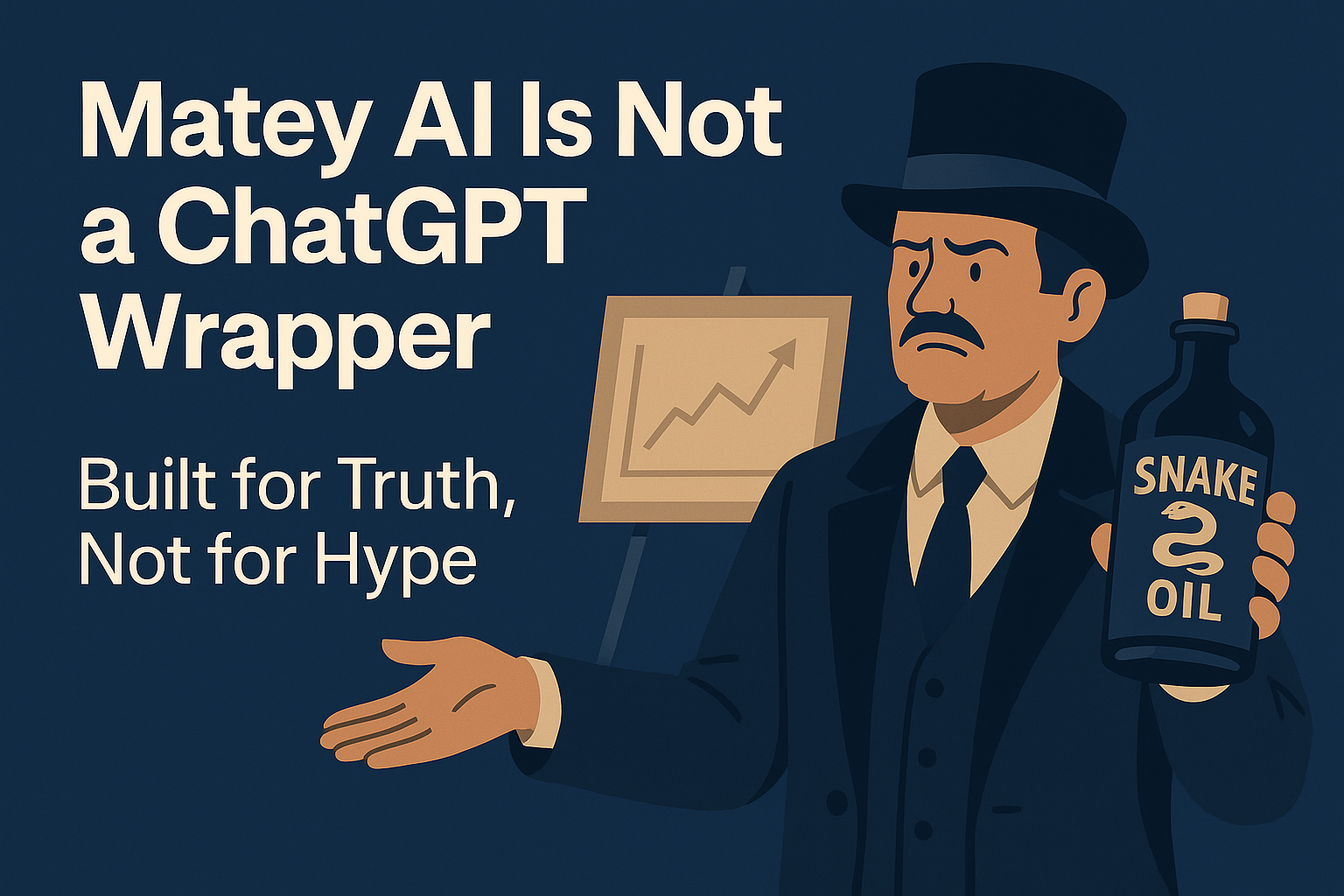Matey Video Demo - DUI Case with Voiceover
The video is a quick demonstration of Matey, showcasing how attorneys can review evidence, such as in a DUI case, in minutes.

Let’s get one thing straight: Matey AI is not a ChatGPT wrapper. We didn’t slap a pretty UI on OpenAI’s API and call it a legal assistant. We didn’t take shortcuts. We didn’t build a toy and hope that no one would notice.
We built Matey because criminal defense deserves better. And we’re tired of watching AI snake oil flood the legal tech market, causing confusion, reputational damage, and real harm to real cases.
Everyone’s excited about AI. And rightfully so. But in legal, where accuracy and defensibility matter, the stakes are too high to play fast and loose with the truth. Yet that’s exactly what’s happening.
Too many so-called “legal AI tools” are glorified ChatGPT inputs with a thin layer of marketing gloss. They hallucinate. They fabricate case law. They "sound smart" but can't tell you where they got their answer, or whether it's even tied to your case data.
And what’s worse, these tools are often built by people with little to no domain expertise in criminal defense, and they’re pushed by sales teams with no legal or technical background. This isn’t innovation. It’s irresponsibility dressed up as disruption.
Matey AI’s CrimD platform was designed from the ground up for the messiness of criminal defense. That means:
Our platform doesn’t pretend to know the law or facts better than you. AI doesn’t “know” anything, and it doesn’t exercise “judgment” - that is for lawyers to do. We help you work faster, dig deeper, and surface insights that already exist in your evidence, but are buried under gigabytes of text, body-worn camera footage, and audio recordings.
Every time a lawyer files a brief with a citation to a hallucinated case, it sets the whole profession back. Judges grow skeptical. Opposing counsel pounces. Clients pay the price. We’ve seen the headlines, and we know who’s to blame: careless builders looking for a big money exit.
Matey was built by people who’ve worked with defenders, public agencies, and government investigators. We know that trust in technology is earned, especially when that technology is used in life-altering cases.
AI can be and is being used consistently with the rules of ethics governing the practice of law. We believe that the question is not whether it can be used, but rather whether a lawyer ethically can ignore AI as a tool for use in the best interests of clients.
We’ll never ask you to “just trust the AI.” We’ll show our work. We’ll surface the evidence. We’ll earn your confidence by acting like your partner, not your black box. And if we have to, we’ll defend our platform on the stand, because we have teammates who are experts at it.
This is not about flashy demos. It’s about building systems that don’t just look smart, but are smart, and safe, and grounded in reality.
If you're using an AI tool that can't explain where its answers come from, stop using it.
We welcome the growing attention on legal AI. But we also believe it’s time to raise the bar. Legal professionals shouldn’t settle for tech theater. They should demand tools built for the trenches, where evidence matters, and outcomes are everything.
So no, we’re not a wrapper. We’re an engine. Built for the truth. Built for defense. Built for the practitioners who truly believe in equal access to justice.